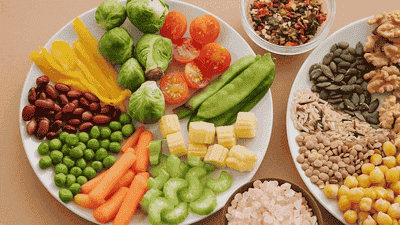
In the world of sports and athletic performance, nutrition plays a pivotal role. Athletes require a well-rounded diet to optimize their physical capabilities, support recovery, and enhance performance. Among various dietary components, meat is a primary source of protein, essential for muscle repair and growth.
Meat is a significant source of high-quality protein, which is crucial for athletes for several reasons:
Muscle Repair and Growth: Protein is composed of amino acids that are necessary for repairing muscle tissue damaged during intense training.
Energy Production: Certain meats provide essential nutrients that aid in energy production, including B vitamins and iron.
Satiety: High-protein diets help promote feelings of fullness, which can assist athletes in managing their weight effectively.
Immune Support: Necessary nutrients found in meats, such as zinc and vitamin B6, are vital for immune function, helping athletes stay healthy and reduce recovery time.
Nutrient Density: Meat is rich in essential nutrients, including iron, zinc, selenium, and B vitamins, which support overall health and performance.

Different types of meats offer varying nutritional profiles. It is essential for athletes to choose wisely to benefit from the unique advantages of each meat type:
Benefits:
Benefits:
Benefits:
Benefits:
When planning an athlete's meat-based diet, certain nutrients should be prioritized to enhance performance:
Protein: Aim for approximately 0.6 to 0.9 grams of protein per pound of body weight, depending on the level of training intensity.
Carbohydrates: While protein is vital, carbohydrates are equally essential for fueling workouts. Athletes should consume 3-10 grams of carbohydrates per kilogram of body weight.
Fats: Healthy fats are important for hormone production and energy. Include sources such as avocados, nuts, seeds, and olive oil while limiting saturated and trans fats.
Hydration: Staying hydrated is crucial. Dehydration can significantly impair performance, so athletes should drink enough fluids before, during, and after exercise.

Here, we’ll provide several sample meal plans tailored for different training intensities.
Breakfast:
Snack:
Lunch:
Snack:
Dinner:
Nutritional Breakdown:
Breakfast:
Snack:
Lunch:
Snack:
Dinner:
Nutritional Breakdown:
Breakfast:
Snack:
Lunch:
Snack:
Dinner:
Nutritional Breakdown:
Meal Timing: Timing meals and snacks around workouts can enhance energy levels and support recovery. Consume carbohydrates and protein within 30 minutes post-exercise to support muscle recovery.
Diversity in Meat Choices: Rotate different types of meats to ensure you receive a variety of nutrients and to prevent dietary monotony.
Incorporate Complementary Foods: Pairing meat with whole grains, healthy fats, and plenty of vegetables enhances nutrient absorption and provides a more balanced diet.
Listen to Your Body: Monitoring how certain foods affect your performance can guide you in tailoring your diet to your needs.
Stay Hydrated: Consumption of water and electrolytes before, during, and after exercise can significantly influence performance and recovery.
Supplements as Needed: While whole foods should be the primary source of nutrients, certain supplements (like protein powder, creatine, or omega-3s) can be considered based on the athlete’s needs.

An athlete's meat plan is instrumental in boosting performance and supporting recovery. By emphasizing high-quality, lean sources of protein, athletes can meet their nutrient needs while enjoying a variety of delicious meals. Embracing a balanced diet that includes adequate carbohydrates, healthy fats, and hydration is essential for achieving optimum athletic performance.
This comprehensive guide offers a tool for athletes to create a structured nutrition plan that enhances performance and supports overall well-being. Remember that nutrition is a personalized journey—what works for one athlete may not work for another, so be willing to adjust your meal plans according to your body’s unique needs.